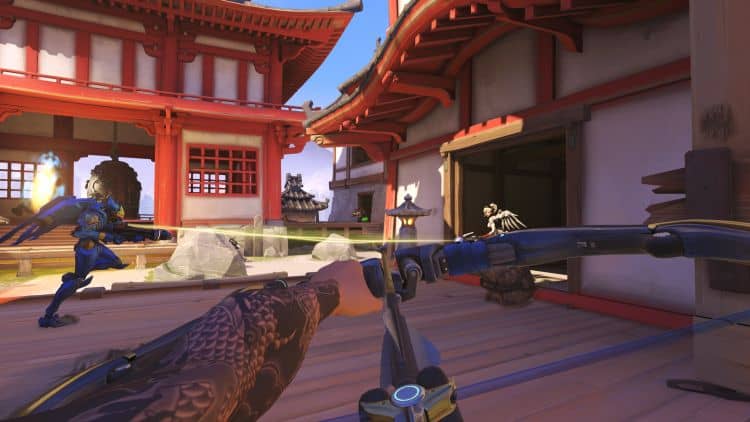I like, many other people, have not been particularly busy over the past couple of months. The number of hobbies I have that involve staying indoors boils down to just a handful of pastimes with the most prevalent being video games. There’s never been a better time to be playing games. I truly believe that.
While there are games like the NBA 2K franchise marketing their product with the excitement of gambling–one of their trailers literally displays a Pachinko-styled mini-game–that showcases the greedy underbelly of the industry, the sheer number, and variety of games out there are almost intimidating. I could blindly pick a title from the itch.io Bundle for Racial Justice and Equality which consists of more than 1000 pieces of software from a deluge of indie developers or finally dive into some of the big, blockbuster titles from this year like The Last of Us Part II or the latest effort by one of my favorite studios from the last generation in Ghost of Tsushima.
Yet, most nights I find myself solo-queuing in Overwatch, a nearly five-year-old game, listening to a stubborn Hanzo main go on a slur-filled tirade.
There’s an old belief that Nintendo preaches often echoed by their most prominent figureheads. The late Satoru Iwata once said, ‘Above all else, video games are meant to be just one thing: fun,’ while walking meme-machine Reggie Fils-Aimé stated in their presentation for E3 2017, ‘The game is fun. The game is a battle. If it’s not fun, why bother?’
It’s a reductive statement to apply to the entire landscape of video games as there are a huge number of fantastic games that wouldn’t fit the traditional definition of “fun” usually coming from the indie scene. But for Nintendo’s intentions, that adage is completely fine. That’s what most people want. That’s why I’ve spent over 700 hours into Super Smash Bros. Ultimate or why I’ve had near-nightly sessions of competitive Overwatch during this quarantine that has lead to upwards of 150 hours of playtime so far. At least that’s what I’ve thought. It’s undeniable that pulling off a flashy combo or getting a quadra-kill with a well-timed DVA bomb is utterly satisfying but I question whether spending so much time in these shortlist of games is completely worth it.
Games have become a national pastime with almost 70-percent of Americans giving a portion of their free time to digital recreation. I know it might not seem like it bears mentioning but video games are a huge phenomenon more so than most people think. When Microsoft announced that it was bringing the wildly celebrated shooter Crossfire to the west, games media personalities from the United States weren’t even aware of its existence despite being the single most popular first-person shooter in the world with over 1 billion players as of early 2020. As more people play video games, the more people will be enticed by the medium’s potential, the more likely we’ll see burgeoning creative minds take a crack at development, and the more games will come from all corners of the world.
There’s nothing wrong with playing a single game for countless hours. Hell, a whole genre in MMOs has its whole foundation on that idea, and speedrunners perfect their craft with hundreds of hours of runs. But my immense backlog of games grows even larger as the years go by causing me to miss some modern classics over the years. The exploratory The Outer Wilds, Sony’s epic reboot of God of War, or the sensation that was Red Dead Redemption 2 are just a few titles I’ve never even touched not to mention the abundance of great, overlooked games that come out every year. That’s why it frustrates me that, more often than not, I keep going back to the same handful of games on a daily basis.
I’m going to admit that this is a huge me problem but it’s difficult to deny that these are designed specifically to be timesinks. Again, it’s not that there’s no merit to sinking dozens of hours into a game and as long as you enjoy it more power to you. But video games can be a vehicle of such unique experiences and I want to take a ride on as many of them as I can.
A trend that bothers me is that mainstream developers aren’t shying away from the concept of Games as a Service (GaaS). You have Rockstar pushing the online modes of both Grand Theft Auto V and the aforementioned Red Dead Redemption 2 (the former being re-rereleased again on next-gen consoles), the new Avengers game is one of the most GaaS-looking games in recent memory and that’s saying something, and the recently announced Gotham Knights looks to be DC’s new flagship GaaS game.
It’s all a personal preference and some people might be elated that these types of games are becoming more and more frequent. From a sheer value standpoint, GaaS games can be a godsend for people looking to have fun on a budget (though the ubiquity of microtransactions can negate this fact) and a lot of these timesink games are incredibly well-made and enjoyable.
My main concern comes in that, with the rising popularity of this design philosophy, more people will experience the same issue I’m dealing with. They’ll unwind at the end of the day, after stressful hours of work or school, deliberate on booting up that one game they’ve been meaning to play–that deserves to be played–for weeks, but instead spend a couple of rounds in Smash, Warzone, Overwatch, or the plethora of other games of the same nature that litter the industry.




